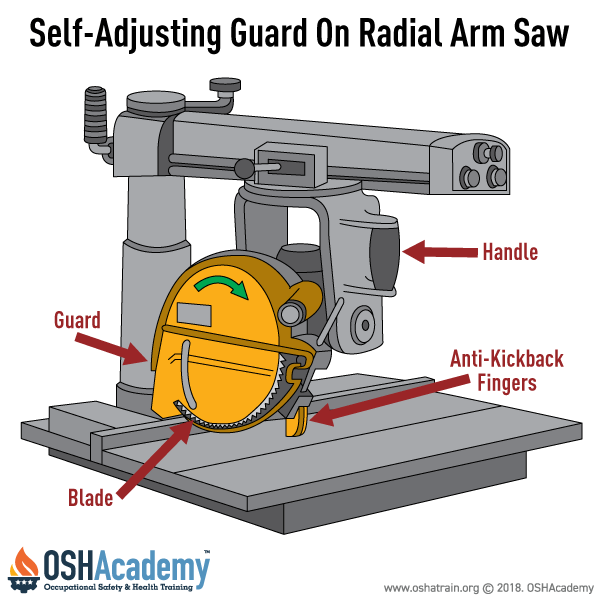Self-Adjusting Guards
This guard protects the operator by placing a barrier between the danger area and the operator.
As the operator moves the stock into the danger area, the guard is pushed away, providing an opening that is only large enough to admit the stock. After the stock is removed, the guard returns to the rest position.
The guards may be constructed of plastic, metal, or other substantial material. Self-adjusting guards offer different degrees of protection.
Materials and Applications
The materials listed below for self-adjusting machine guards ensure they are able to withstand impacts and regular use.
- Protection based on stock size: The guard only opens enough to allow the stock to pass, minimizing exposure to moving parts.
- Automatic return: Once the stock is removed, the guard moves back to cover the danger area fully.
- Material options: Guards can be made from durable plastics, metals, or other strong materials depending on the machine and environment.
- Flexible design: Suitable for various machines like radial arm saws, table saws, and other cutting tools.
- Operator safety: Reduces risk of accidental contact by maintaining a barrier except when necessary to allow stock movement.
Examples
- Radial arm saw blade guards that move with the stock.
- Table saw blade guards that slide back as wood is pushed forward.
- Band saw blade guards that adjust to the thickness of the material being cut.
- Router table guards that automatically move when the stock is fed into the cutting area.
- Scroll saw guards that change position based on stock size and movement.
| Safeguarding Action | Advantages | Limitations |
|
Provides a barrier that moves according to the size of the stock entering the danger area |
Off-the-shelf guards are often commercially available |
Does not always provide maximum protection May interfere with visibility May require frequent maintenance and adjustment |
Knowledge Check Choose the best answer for the question.
2-5. Which type of safeguard automatically adjusts to provide an opening that is only large enough to admit the stock?
You forgot to answer the question!

